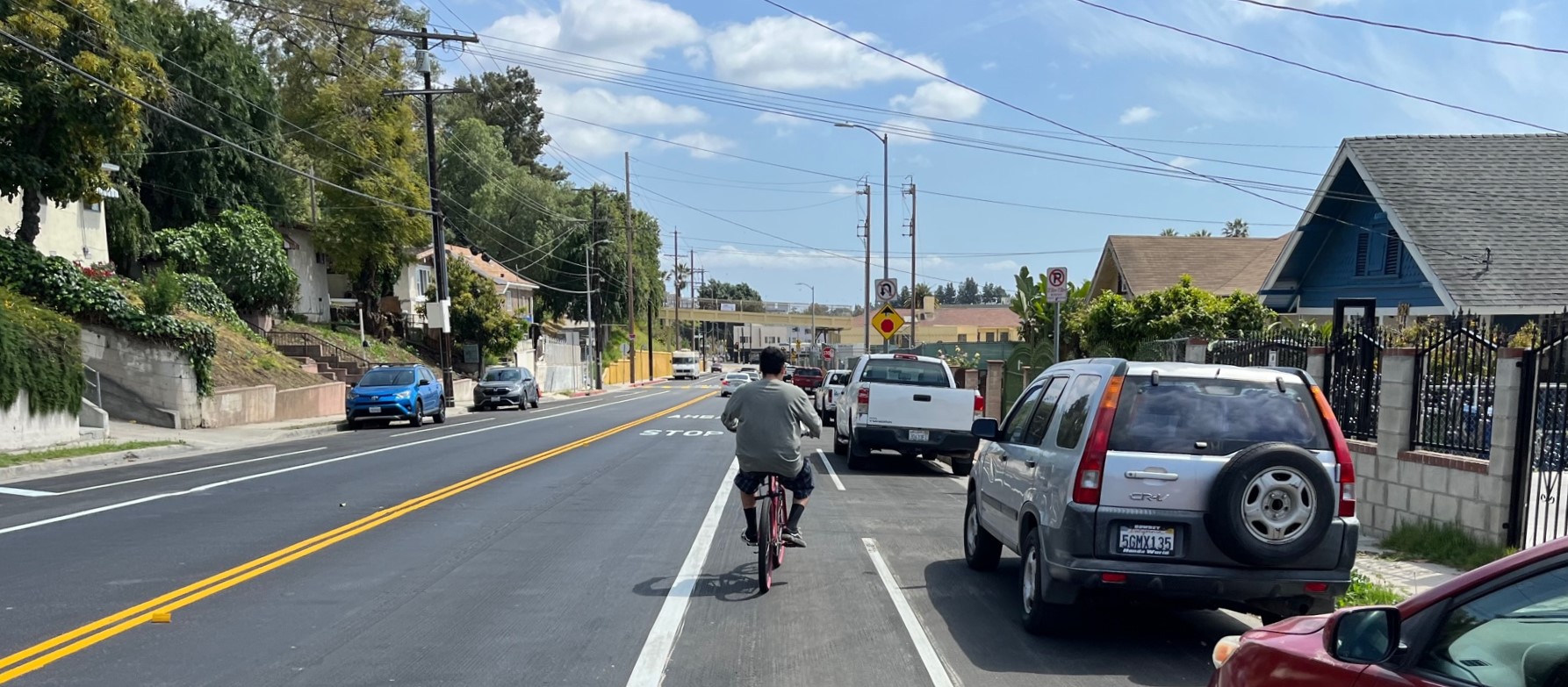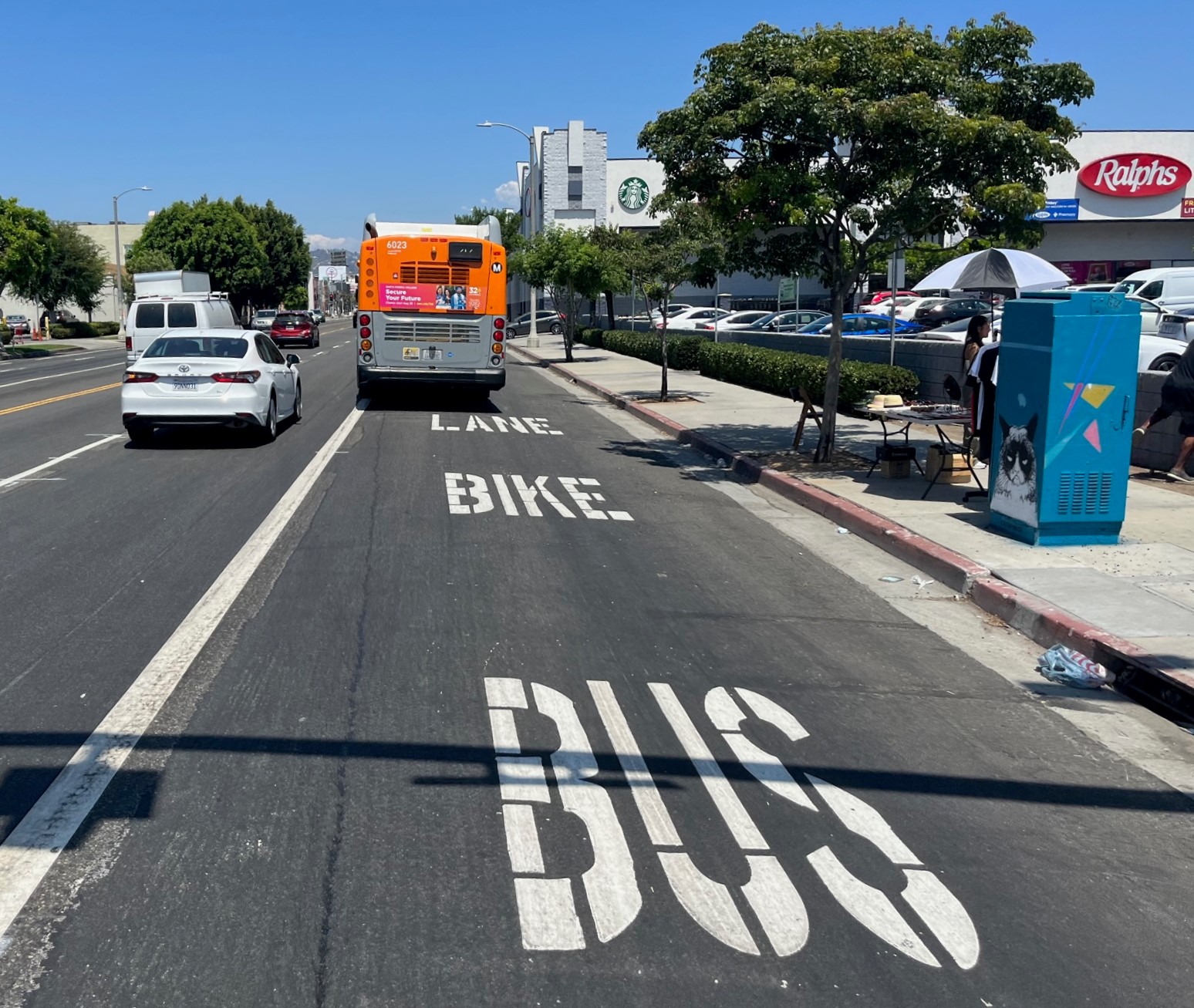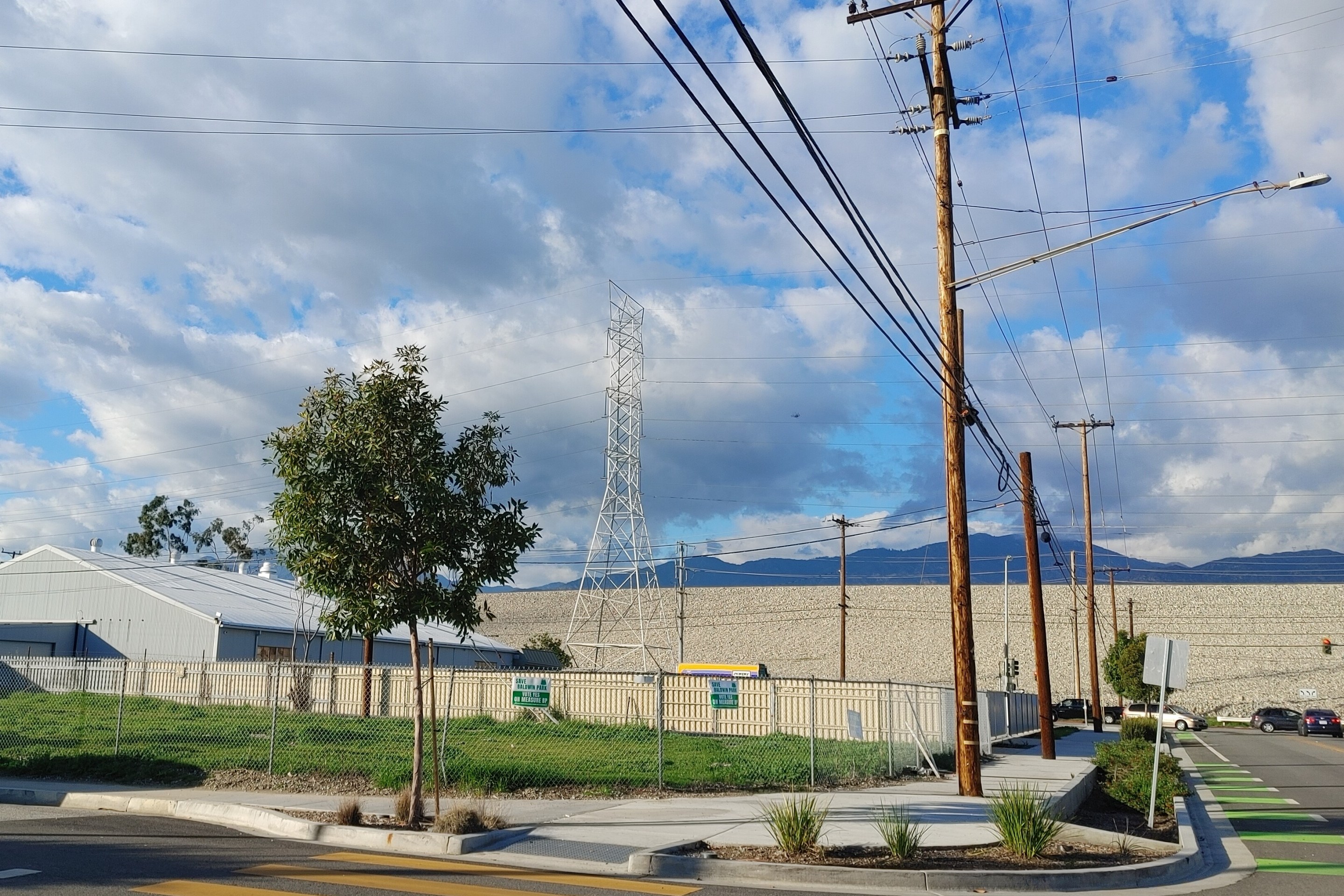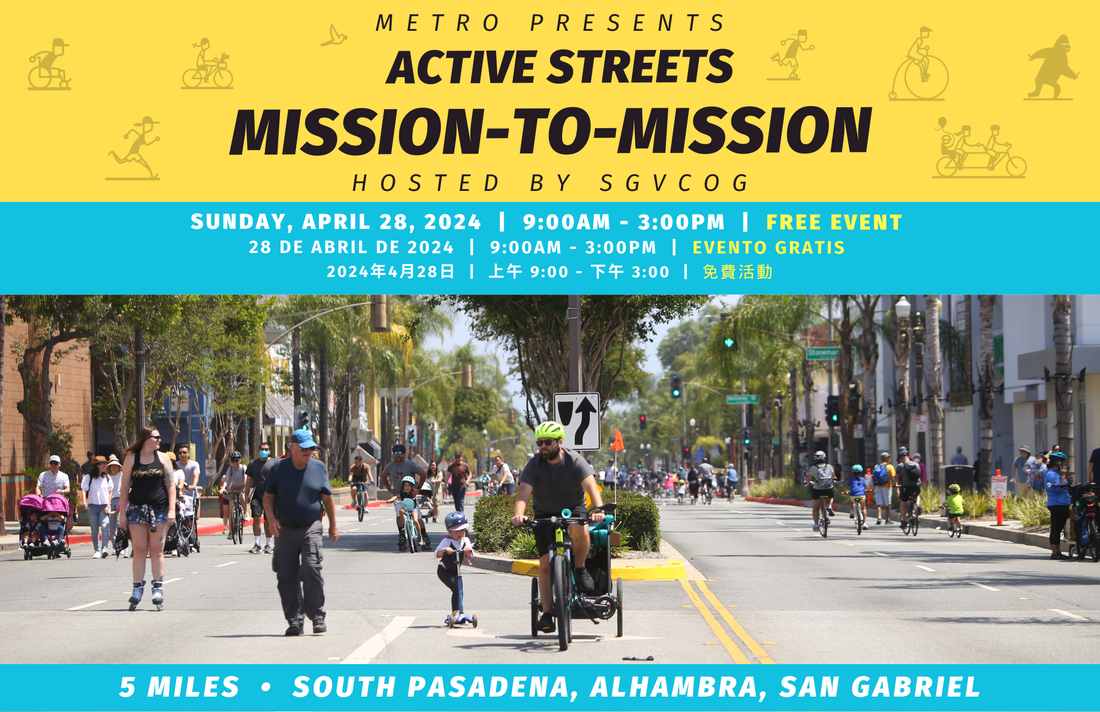Editorial: L.A. Parking Reform Can Start With Handicap Placard Reform
12:38 PM PDT on July 16, 2014
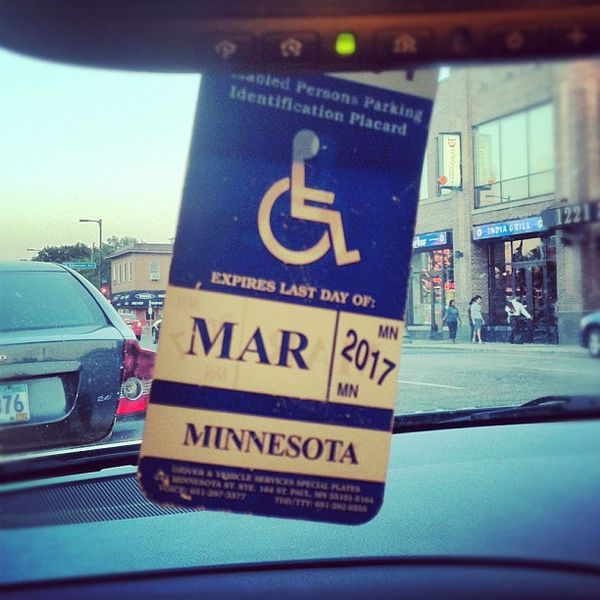
Lately, there is a lot of attention directed toward reforming parking in Los Angeles. Various solutions are in stages of implementation and discussion.
The city of Los Angeles has pioneered a relatively sophisticated curb-parking pricing program called ExpressPark. ExpressPark uses technology and, mostly, variable pricing to respond to curb parking demand.
One of the louder voices in the recent parking debate is the Los Angeles Parking Freedom Initiative. Their parking reform platform includes various tweaks to L.A.'s parking systems, from sign legibility to street sweeping. LAPFI states that the city first needs to address the issue of "basic fairness" meaning "parking fines are just too high." This has translated to a push for reducing parking violation charges from their current average of $67 to only $23.
But what if there were a group of law-breakers who were immune to parking meter costs and never received violations? None of these projects would impact those scofflaws.
There, of course, are: drivers who abuse disabled placards.
Disabled placards are relatively easy to obtain and allow unlimited free parking at meters. Here is how parking expert Don Shoup describes L.A.'s handicapped placard scofflaws, from a 2011 interview with SBLA:
The main problem we already have in L.A. is the widespread abuse of handicapped placards. A disabled placard in California is like a “free parking” pass for the entire state. One of our students just finished his Masters thesis on placard abuse in downtown. He surveyed one block on Flower Street where there are 14 metered parking spaces. Most of the spaces were filled most of the time with cars that had disabled placards. For five hours of the day, all fourteen spaces were occupied by cars with disabled placards.
Although the meter rate was $4 an hour, the meters earned only 32¢ an hour in collections because most of the time the meters were occupied by cars that paid nothing.
The L.A. Weekly reported on a 2013 DMV placard-enforcement operation that resulted in charges against 241 Southern California drivers. Enforcement, and sting operations in general, appears to have little in the way of lasting effects.
According to Shoup, City Lab, and Better Institutions, the way to truly end widespread placard abuse is to stop giving unlimited free parking to all placard holders. Other cities and states are already pioneering this solution.
As of July 1st, 2014, the city of Portland, Oregon, ended free parking for disabled drivers. The new law allows exceptions for severely disabled drivers, including actual wheelchair users, to continue to park for free. Drivers with basic disabled placards are still allowed to park for triple the posted time limit, but they must pay.
This Portland Tribune article tells the night-and-day difference:
Parking code enforcement officer Becky Rhodes observed first hand the change the new policy was having on the supply of spaces. On Wednesday, July 2, Rhodes said, she walked the east side of Southwest Fourth Avenue between Main and Salmon streets and saw something she’s never seen before — open curbside parking. And the few cars that were parked on the street did not display disabled placards.
“Normally that block, there might have been one space with no permit,” Rhodes said.
Rhodes and her fellow enforcement officers gave out 24 warnings on Tuesday, July 1, the first day of the new policy, and 100 on Wednesday, July 2.
Mid-morning Thursday, July 3, Rhodes was walking north on Fourth Avenue when she turned the corner to head east and stopped in her tracks as she looked down Taylor.
“Wow, there are all these open spaces,” Rhodes remarked. Indeed, a block that was always full of parked cars at that time of day was nearly deserted. The south side of Taylor Street had six open spaces and only two parked cars. Cars with disabled placards had almost completely disappeared from blocks they traditionally filled.
Rhodes wasn't alone in her observation. “Other parking officers have been coming in and saying they do not recognize their beat,” said Portland Bureau of Transportation spokeswoman Diane Dulken.
After 30 minutes of patrol, Rhodes had come across only four cars parked with disabled placards. Two displayed parking stubs as the new rules require. One had a wheelchair placard that indicated the driver is wheelchair-bound and thus exempt from the new rules.
The Portland Tribune article goes on to describe how the state of Michigan also abolished free handicap placard parking. Michigan placard applications went from 500,000 down to 10,000 that year.
This City Lab article responds to a concern that reforming handicap parking policies might do harm to actual disabled people.
[Researchers Michael Manville and Jonathan Williams ] argue that disabled placards, as presently conceived, don't help those with the most serious disabilities (who can't drive anyway) nor those with moderate disabilities but low income (who can drive but can't afford a car). Instead they propose using the increased parking revenue that will come from eliminating placards to improve programs, such as paratransit service, designed to benefit this neediest group. They conclude:
Laws that grant free parking to people with disabilities help neither most people with disabilities nor those with the most severe disabilities. These laws also help neither most of the poor nor the poorest.
Whether parking meter violations cost $23 or $230, it is unlikely to make a significant difference if handicap placard scofflaws continue to be completely immune to meter fees and violation costs. Placard abusers take up spaces, making finding a space difficult for honest drivers who are willing to pay. The lack of availability of metered parking hurts nearby businesses. Freeing up these spaces for paying customers will increase revenue for the city of Los Angeles, too.
Ending placard abuse will free up metered parking in hard-to-park areas like Westwood and Downtown Los Angeles. The city should end free disabled parking, but, as Portland and Michigan have already done, make sure that any policy change includes provisions to protect the mobility of the severely disabled.
Added Note: Apparently there will need to be reform at the state level for interested California cities to change the way they handle disabled parking. See this additional handicap placard issue coverage at Streetsblog San Francisco.
(Addendum: Lastly, here are a few worthwhile recent parking articles I'd like to acknowledge for helping shape this editorial. Without these sources to lean on, I wouldn't have any parking insights to pass along to SBLA readers:
- Better Institutions published its Los Angeles Parking Meter Reform, Reasonable Edition
- Designer Nikki Sylianteng's proposed visually-streamlined parking restriction signage received coverage in Gizmodo and Wired.
- UCLA's parking expert professor Don Shoup gave his insights on Parking Reform in this L.A. Times interview and this SF Gate editorial.
- Even São Paulo, Brazil, has adopted forward-thinking new parking standards.
Thanks to everyone working to make parking reform work for all Angelinos.)
Stay in touch
Sign up for our free newsletter
More from Streetsblog Los Angeles
Eyes on the Street: New Lincoln Park Avenue Bike Lanes
The recently installed 1.25-mile long bikeway spans Lincoln Park Avenue, Flora Avenue, and Sierra Street - it's arguably the first new bike facility of the Measure HLA era
Brightline West Breaks Ground on Vegas to SoCal High-Speed Rail
Brightline West will be a 218-mile 186-mile-per-hour rail line from Vegas to Rancho Cucamonga - about 40 miles east of downtown L.A. - expected to open in 2028
This Week In Livable Streets
Active Streets Mission-to-Mission, LAPD reports on its use of force in 2023, Pasadena Transit plans, Metro subway construction, and more
